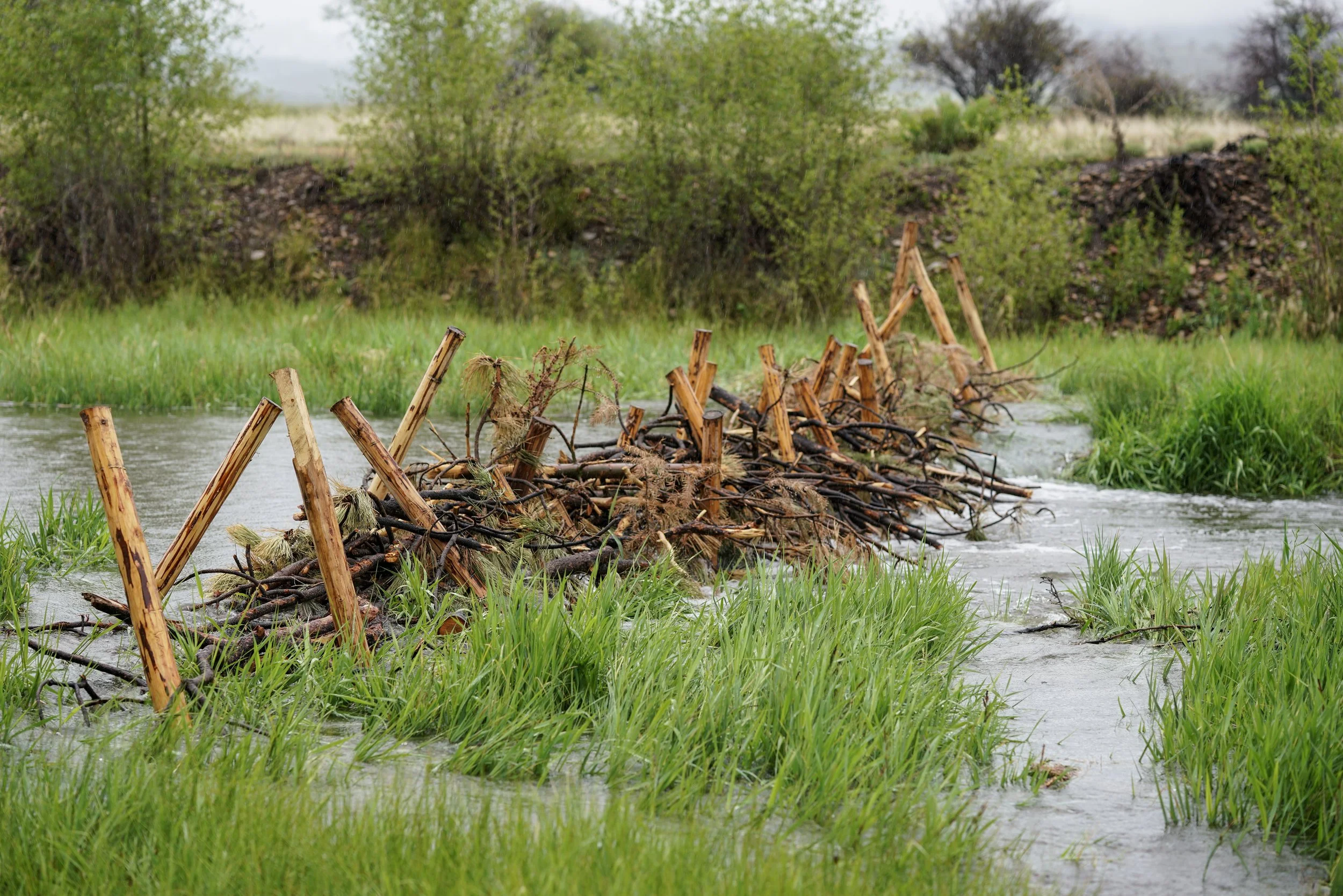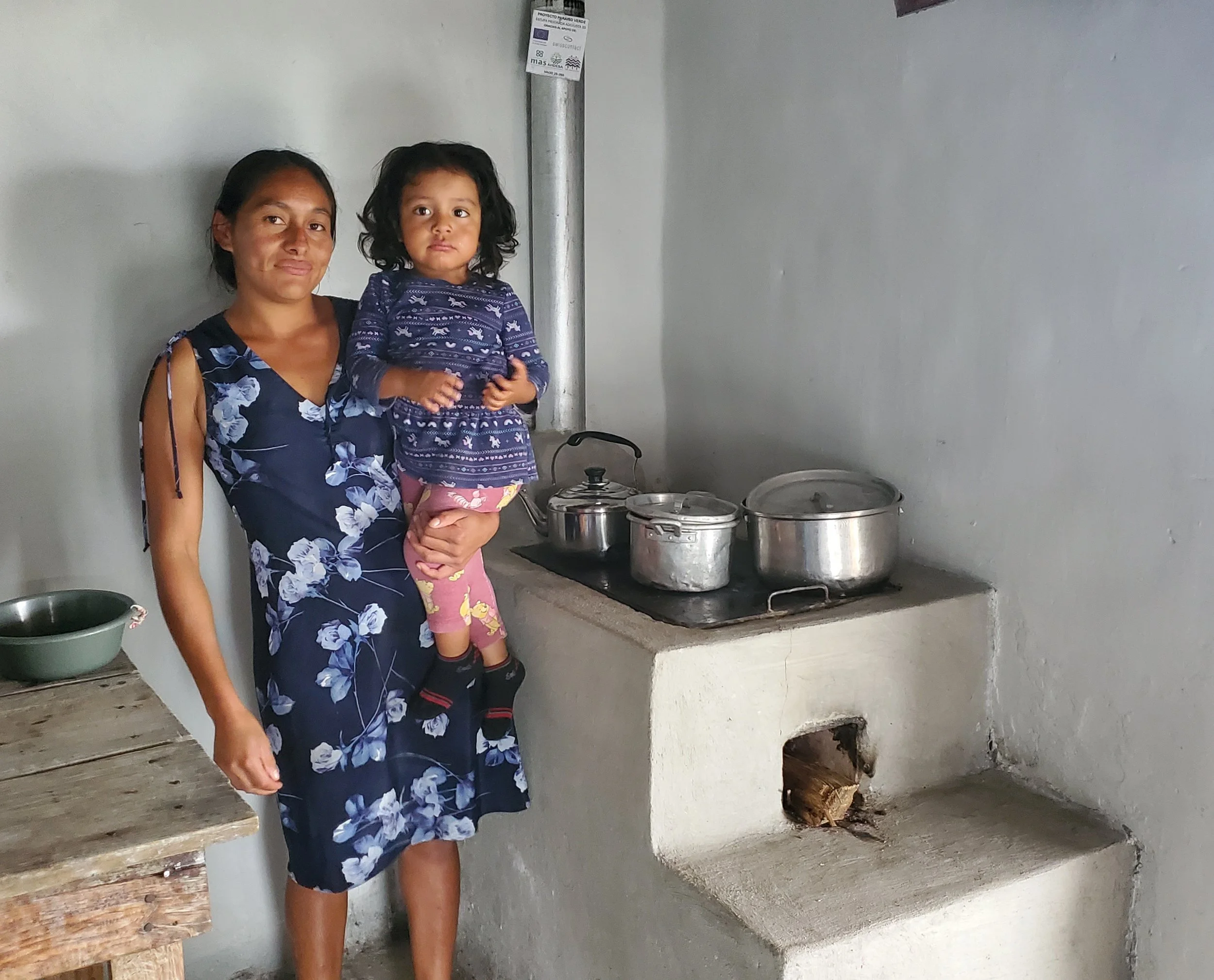
FORESTS FOREVER
Fall 2021 • Trees, Water & People Newsletter
Santo Domingo elder plants a Douglas Fir seedling on Kewa Tribal Lands photo by José Chalit
A Note From Our Indigenous Lands Program Director, James Calabaza
Happy Native American Heritage Month! As we celebrate this month in honor of our First Peoples and their deep-rooted connection to this land, it reminds us of how vital stewardship is to the well-being of our planet and our communities.
At TWP, not only do we believe in the importance of engaging with our Native Peoples on conservation tactics, but also how we can learn from their cultural-based practices. Native People have been stewards of these lands from watershed management, rangeland stewardship, and water preservation for thousands of years. They have an acute understanding of natural disturbances and climate vulnerability that is unique from popular Western science.
Why has mainstream society lacked to incorporate Indigenous conservation methods into prevention and restorative treatments of our lands?
This is why TWP’s Indigenous Lands Program exists.
We aim to build capacity and provide opportunities for Tribal communities to develop their conservation strategies. Equally important to us is amplifying Indigenous voices and learning about their stewardship practices. Many Indigenous communities look at restoration and land rehabilitation through a cultural context of intergenerational responsibility to protect their ceremonies, language, and songs. All of these are directly connected to the natural world too.
It’s what makes our engagement with Tribal Nations special and unique. TWP also invests in Indigenous-led projects to break down geographic barriers that prevent centuries-old stewardship practices from synergizing with modern, Western Science.
Take the U.S. forest fires in 2020 that devastated hundreds of thousands of forest acreage, farmlands and infrastructure across the West. Native People in this region have been managing wildfires for hundreds of years through cultural burn practices and using fire as a form of medicine for the land and people. Centuries-long fire practices have allowed Indigenous people to adapt and live with fire through constantly changing environments. But to properly implement these cultural practices, we must understand that collaboration with Tribes requires the willingness to learn from and respect Traditional Ecological Knowledge at every stage.
Tink and her son Ladon helped cook all the meals and also planted some trees during this year’s reforestation in Pine Ridge Photo by: Evan Barrientos
For years, TWP has been wrestling to balance traditional ecological knowledge and modern science in our work. We have much to continue learning, but we’ve made giant strides to shape this balance by working with the Tri-Pueblo Coalition (Cochiti, Jemez and Santo Domingo Pueblos). The impacts promote healthy transboundary working relationships that can share knowledge, build sustainable livelihoods and reinstate reciprocal trust.
TWP is privileged to be working hand in hand with Indigenous leaders who understand that current conditions are complex, and we continue learning how to best support communities to adapt to changing climates. This isn’t only true for Tribal communities, but for us as well. It teaches us that we should be willing to adapt and evolve to new challenges and situations we will be facing down the road as an organization and community.
We know we still have much to learn. That’s why TWP continues to invest in Indigenous-led solutions to protect our planet and our crucial resources. Your ongoing support will not only help preserve local environments, but will benefit the Indigenous stewards on the frontlines as well.
We’re ready for this journey, and we have room to take you with us if you are ready to make the commitment too.
With Gratitude,
James Calabaza
Indigenous Lands Program Director | Santo Domingo Pueblo
Trees, Water & People
HOMELANDS – A Short Documentary on Lakota Tree Planting
By James Calabaza and José Chalit
One beautiful spring morning this past May, we loaded 28,000 tree seedlings at the Colorado State Forest Service Nursery into our trucks and trailers and headed north for our annual tree planting in Pine Ridge. After 6 years of planting on the homelands of the Oglala Sioux Tribe, 2021 brought the unique opportunity to produce our long-awaited short documentary alongside Red Cloud Renewable. The film will explore questions of what tree planting on Tribal Lands means to local people and what roles Indigenous knowledge can play in the fight against climate change.
We were so honored to participate in tree planting alongside the local Oyate (people) this year, but we were thrilled to also dig deeper into the stories and lives of the tree planters that came out each day. From the generous support of Ceres Trust, we were able to work with the Oyate to document and convey their efforts to preserve their lands and protect our planet.
The first morning started with a beautiful blessing in the Lakota language, followed by an introduction and training session led by Chief Henry Red Cloud. Tree planters traveled each day from Wounded Knee, Porcupine, and even Rapid City to the Sacred Earth Lodge in Oglala that many of you helped fund the construction of in 2013.
Bringing together generations of Lakota Oyate, planting sacred tree species like ponderosa pine and cottonwoods also created opportunities for elders to pass down wisdom, for youth to connect to their history, and for a community to actualize their visions of the future. From jewelry makers to Tribal government officials and local youth, Lakota women and men from various walks of life shared their commitments to restoring their homelands and how they continue to prepare for the inevitable consequences of climate change.
Six years later, the Lakota people continue to fight adversity in their communities, yet the region has also become an epicenter of climate resilience and ecological activism. The Homelands documentary will be screened in person for our local Fort Collins donors soon. If you want to watch the film online, sign up for the Evergreen Circle to become a monthly donor and you’ll receive a private link to view Homelands. Thank you for your trust, dedication, and support of TWP’s National Program.

“Collaboration with Tribes requires the willingness to learn from and respect Traditional Ecological Knowledge at every stage”
– James Calabaza
Santo Domingo Warchief contemplating the landscape impacted by the 2011 Las Conchas wildfire
Indigenous and locally-led Reforestation on the Guatemala-El Salvador Border
by the TWP International Staff
For generations, rural and Indigenous families in Guatemala and El Salvador have been the front-line stewards of tropical forests and watersheds. Women, in particular, play key roles in monitoring community watershed health but now face severe burdens from their country’s deteriorating economies and ecosystems. Hundreds of thousands of people have left their homes and livelihoods to flee North in the hopes of a better life. These mass migrations are only becoming more frequent due to the ongoing global pandemic and Hurricanes Eta and Iota that devastated the region in 2020, leaving an even greater responsibility of watershed protection in the hands of women and youth.
Trees, Water & People believes that the best way to protect and restore local livelihoods and forests in Central America is by centering community members’ expertise and local knowledge. And for 26 combined years we have worked with our partners Utz Che’ in Guatemala and Árboles y Agua Para el Pueblo in El Salvador to strengthen community-led solutions that address social and environmental injustices. Together, we have planted nearly 1.5 million trees restoring 450 hectares of tropical forest, improved household health with the installation of 9,000 cookstoves, and helped recover local, agriculture-based economies through agroforestry, farm diversification, and food sovereignty.
This year, 15 different communities called on TWP and our partners to help plant 250,000 trees in neighboring forests around the Guatemala-El Salvador border. These trees will deliver critical ecosystem services to community members, enriching soils, protecting groundwater, and providing nutritious food sources. Planting trees has also been a source of healing for people, and gives young people a chance at caring for and practicing reciprocity with the land.
Planting trees takes an extraordinary amount of hope, and while it may not solve every social and environmental problem, trees help demonstrate Central American people’s incredible dedication to place. The more we can help empower strong community leaders, build adaptable programs, produce verifiable evidence of success, and lift the voices of rural and Indigenous farming communities, the more resilient a future we make for generations of Central Americans to come.
Avocado Green Brands
by Sebastian Africano
In the first days of 2020, Avocado Green Brands reached out to Trees, Water & People (TWP) to see how we could partner with them to create impact with a portion of their sales. They learned of us through their membership in 1% for the Planet, a platform started by Patagonia founder in 2002 that encouraged members to annually donate a portion of revenues to environmentally beneficial initiatives, whether or not the companies were profitable or not.
Since that first conversation, Avocado Green Brands has donated more than $100,000 to Trees, Water & People, helping us weather the uncertainty of 2020, and grow our programs on both Tribal Lands and in Central America. Together, we have funded the planting of thousands of trees, helped launch ambitious watershed restoration initiatives, supported our clean cooking programs, and most recently, funded the launch of a sustainable spice farming program in Honduras.
Avocado Green Brands is the type of ally our sector needs. They’ve channeled meaningful resources to TWP’s work, and trusted us to find the best way to deploy those funds. The idea that communities experiencing climate change up close are those best positioned to usher in solutions is central to Trees, Water & People’s locally-driven approach, and is what Avocado Green Brands has invested in. Putting these communities’ at the center of restoration discussions and decisions is true Environmental, Social Governance (ESG) investing in action.
In an era when making ESG pledges is en vogue, organizations like TWP need more allies willing to invest in qualitative processes that build local capacity to fight climate change. It’s not how many trees you plant, or how many footprints you leave in your work, it’s how long they remain that makes an impact. We thank Avocado Green Brands for believing in TWP’s approach to sustainable development, and for providing us the resources to invest in the livelihoods of those best positioned to make climate positive change.











When the 110 families of El Asintal resettled in Guatemala, they arrived home to a near-empty plot of land, with scarce resources to rebuild.
Like many Indigenous communities in the region, these families were displaced amidst Guatemala’s violent civil war. The government’s designation of lands for resettlement in the early 2000s was an opportunity to return home, but not without significant debt and great hardship.